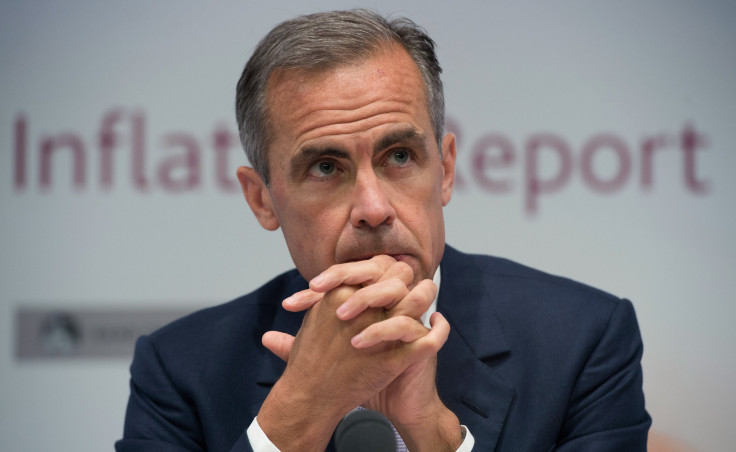Amid China Economic Slowdown, Bank Of England Votes To Keep Interest Rate At Record Low Of 0.5%

The Bank of England apparently isn't too worried about the state of the world economy, as its regulating Monetary Policy Committee voted Thursday to leave interest rates at 0.5 percent, the lowest level ever, according to multiple reports. The vote was nearly unanimous, at 8-1. Still, the positive economic perspective as indicated by the vote didn't meant the door wasn't completely closed on the prospects for an eventual interest rate increase amid the ongoing global market meltdown as a result of China's economic slowdown. The current interest rate has remained in place for six years.
The minutes from the Monetary Policy Committee's meeting was released shortly after the group adjourned, indicating that the group's members feel there is no immediate sense of economic urgency in the United Kingdom. “Global developments do not as yet appear sufficient to alter materially the central outlook described” in the Bank's most recent inflation report, reads the meeting's minutes, according to Bloomberg News. “But the greater downside risks to the global environment merit close monitoring for any impact on domestic economic activity.”
The Monetary Policy Committee's vote to keep the interest rate as-is was consistent with what its leading member all but recommended last month, when Governor Mark Carney said a decision on the fate of the interest rate would be better made at the beginning of 2016. “Although the downside risks emanating from overseas had risen, it would be premature to draw strong inferences from this month’s events for the likely path of activity,” Carney said according to the minutes, Bloomberg reported.
Bank of England leaves Bank Rate unchanged at 0.5%. No new QE. 8-1 split in the vote. pic.twitter.com/H8ltHJS66H
— RBS Economics (@RBS_Economics) September 10, 2015
Ian McCafferty, the lone member of the Monetary Policy Committee who voted to raise interest rates both this and last month, wanted it raised to 0.75 percent, insisting that the time to act was now.
Still, after the minutes were made public, the U.K.'s currency rose 0.4 percent, compared to its inflation rate of 0.1 percent in July, for which, according to the minutes, the Monetary Policy Committee saw “continued upside risks to inflation relative to the target.”
The news of the vote came amid stock markets in Asia dropping, stoking worries over further Chinese deflation and showing in part that the demand for China's manufacturers is falling. “The change in the producer prices index is very worrying,” Li Huiyong, an economist at Shenyin & Wanguo Securities, told the Guardian. “It could affect corporate profitability, which in turn could affect consumption and the economy.”
© Copyright IBTimes 2024. All rights reserved.












